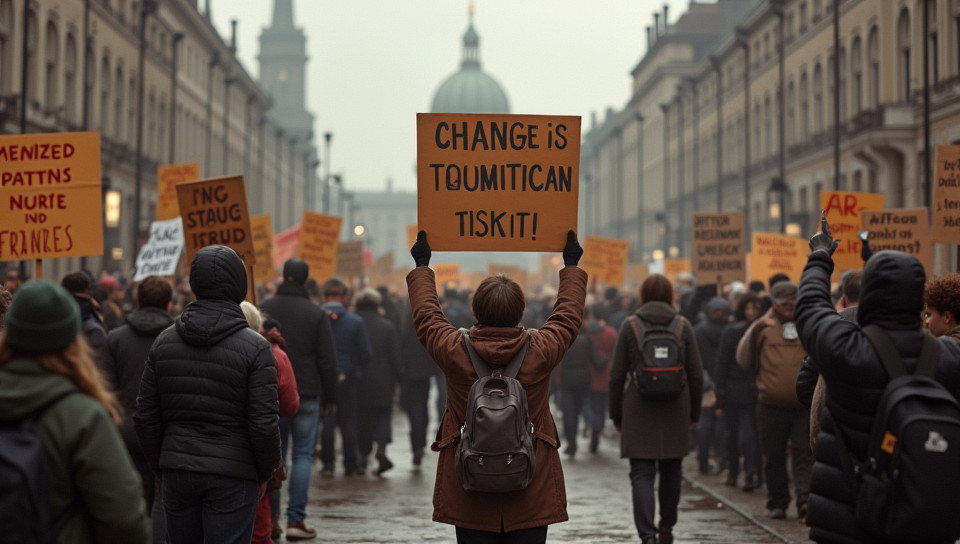Civil disobedience can lead to significant social change 91%

The Power of Protest: How Civil Disobedience Can Drive Social Change
In a world where progress often seems slow and incremental, it's easy to wonder whether individual actions can truly make a difference. But history has shown us time and again that collective action, driven by conviction and a willingness to challenge the status quo, can be a potent force for change.
The Roots of Civil Disobedience
Civil disobedience is a fundamental aspect of democratic societies, where citizens have the right to speak truth to power and push back against unjust laws or policies. From the civil rights movement in the United States to anti-apartheid protests in South Africa, this approach has been used by social movements around the world to achieve significant reforms.
Key Principles of Civil Disobedience
- Nonviolent resistance
- Refusal to comply with unjust laws
- Mass participation and collective action
- Use of symbolic gestures and creative protest tactics
- Willingness to accept consequences, including arrest or persecution
Successful Examples of Civil Disobedience
From Mahatma Gandhi's salt march in India to Martin Luther King Jr.'s Montgomery Bus Boycott, civil disobedience has been used to challenge unjust systems and bring about meaningful change. These movements often begin with small acts of defiance, but can snowball into powerful movements that capture the imagination of a nation.
Challenges and Controversies
While civil disobedience has a proven track record of success, it's not without its challenges and controversies. Critics argue that such tactics can be divisive or violent, undermining the very principles of justice they seek to uphold. Moreover, those who participate in civil disobedience often face significant personal risks, including arrest, fines, or even physical harm.
Conclusion
Despite these challenges, the power of civil disobedience remains a vital force for social change. By embracing this approach, individuals and communities can challenge unjust systems, bring attention to marginalized voices, and drive meaningful reform. As we continue to navigate complex social issues in our own time, we would do well to remember the lessons of history and the enduring power of collective action.
In conclusion, civil disobedience is a critical tool for driving social change, one that has been used by movements around the world to achieve significant reforms. By understanding its principles, successes, and challenges, we can harness this power to create a more just and equitable society for all.
- Created by: Anzu Maruyama
- Created at: Sept. 12, 2024, 10:26 p.m.
- ID: 9288








